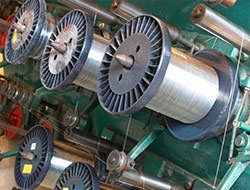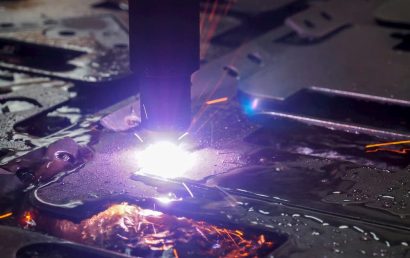The Importance Of Coating Analysis In The Fabrication Industry
In the world of fabrication, the quality and efficiency of materials can make or break a product. One crucial factor in achieving these qualities is the coating that covers their surfaces. Coating analysis plays a significant role in ensuring coatings’ functionality, durability, and overall quality – all crucial components for successful production at lower costs. This article will examine precisely why coating analysis is so vital to industry professionals like yourself: exploring its benefits towards increasing performance levels while mitigating financial losses.
What Is Coating Analysis
Are you looking to evaluate coatings applied to various materials, especially metals in the manufacturing industry? If so, coating analysis is the process that can help you achieve this. This process assesses the properties and performance of coatings used for protection, insulation, and aesthetics and ensures they meet the required specifications and standards. Verifying these requirements guarantees your final products’ utmost quality and durability.
How Is Coating Analysis Performed
When analyzing coatings, it’s essential to determine the most suitable technique based on the material and coating type. Common approaches include visual inspection, thickness measurement, adhesion evaluation, and chemical composition analysis. Performing these methods helps identify defects or inconsistencies from required specifications, enabling corrective measures before final production.
Coatings Provide Protection To Metallic Surfaces: As someone in the fabrication industry, you know that protecting metallic surfaces from environmental factors is crucial for maintaining material performance and durability. Coatings can shield against moisture, chemicals, and UV radiation that would otherwise cause damage or degradation over time. To ensure your protective coatings are applied correctly, coating analysis confirms they meet the required specifications to safeguard the material and enhance its lifespan.
Coatings Prevent Corrosion: If you’re dealing with metallic materials, you might face corrosion issues. This is especially true in demanding environments or when exposed to corrosive chemicals. Coatings act as a barrier between the metal surface and those harmful elements to prevent or delay the onset of corrosion. Coating analysis is crucial in determining whether these protective layers are up to guard against corrosion.
Coatings Provide Insulation: In your applications, having an insulating layer is crucial for keeping heat transfer and electrical conductivity at bay. Coatings can act as a vital barrier that minimizes these effects significantly. By analyzing the coatings, you ensure their insulating properties meet the standards set, satisfying the requirements of the final product.
Coatings Also Have Aesthetic Value: In addition to enhancing their functionality, coatings can also considerably uplift the appearance of the final product. Coating experts offer a wide gamut of colors, textures, and finishes that can be customized for branding opportunities to further elevate its aesthetic appeal. Through meticulous coating analysis procedures, they guarantee that your desired appearance and quality requirements are met.
Reducing Costs: By identifying defects and inconsistencies in coatings early in your manufacturing process, you can significantly reduce costs related to rework, scrap, and warranty claims. This results in better efficiency and profitability for your fabrication company.
Eliminate Manual Testing: Coating analysis techniques can be incredibly useful in reducing the time and effort typically required for manual testing. Given that manual testing is often time-consuming, labor-intensive, and error-prone, it can be highly inefficient to rely solely on these methods. Automated and advanced testing techniques are capable of providing more accurate results with significantly greater reliability.
Improve Quality Control And Assurance: Coating analysis is crucial in quality control and assurance. By analyzing coatings applied to materials, you ensure they meet the specifications and standards. This ensures that the final product meets your desired quality levels, leading to delighted customers and a reduced risk of product failure.
Reduce Scrap Rates: By identifying defects and inconsistencies in coatings early during the manufacturing process, you can reduce scrap rates, typically associated with rework and product failure. This leads to improved efficiency and profitability for fabrication companies.




